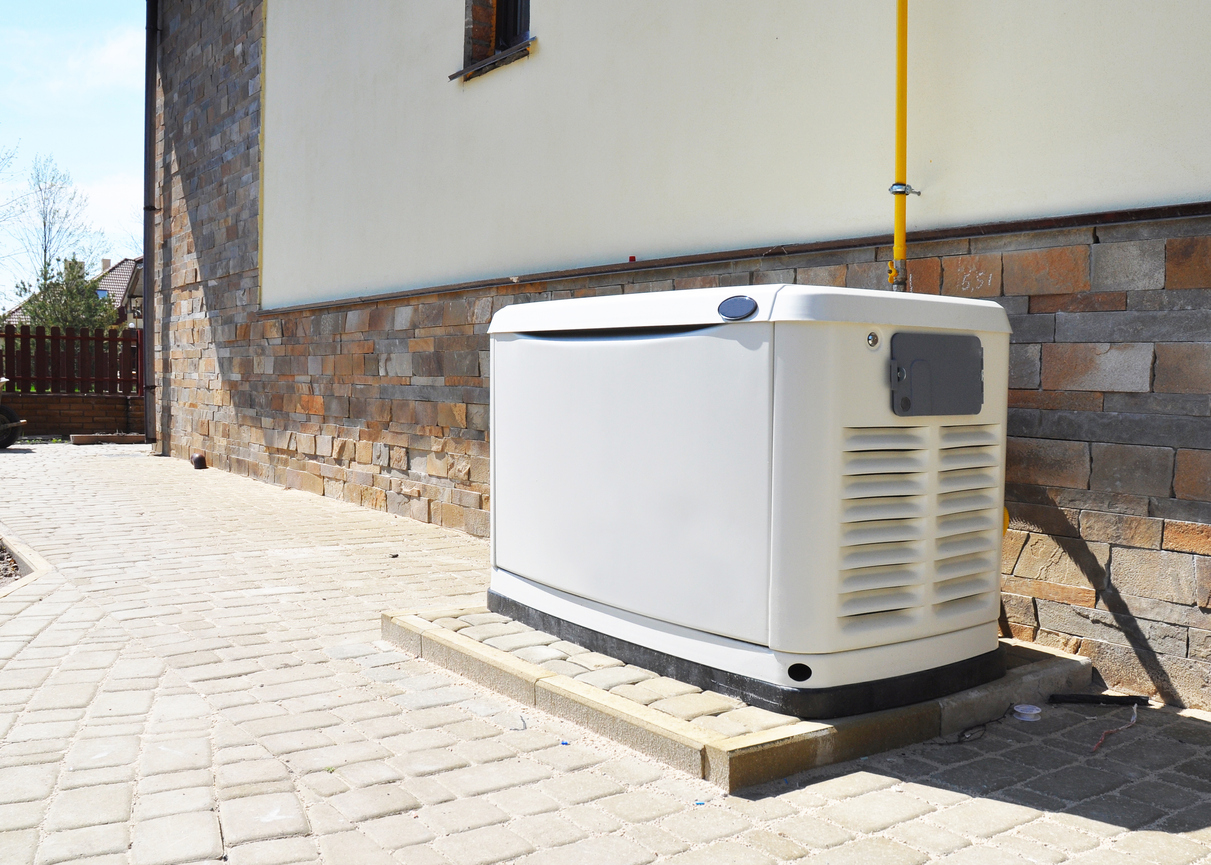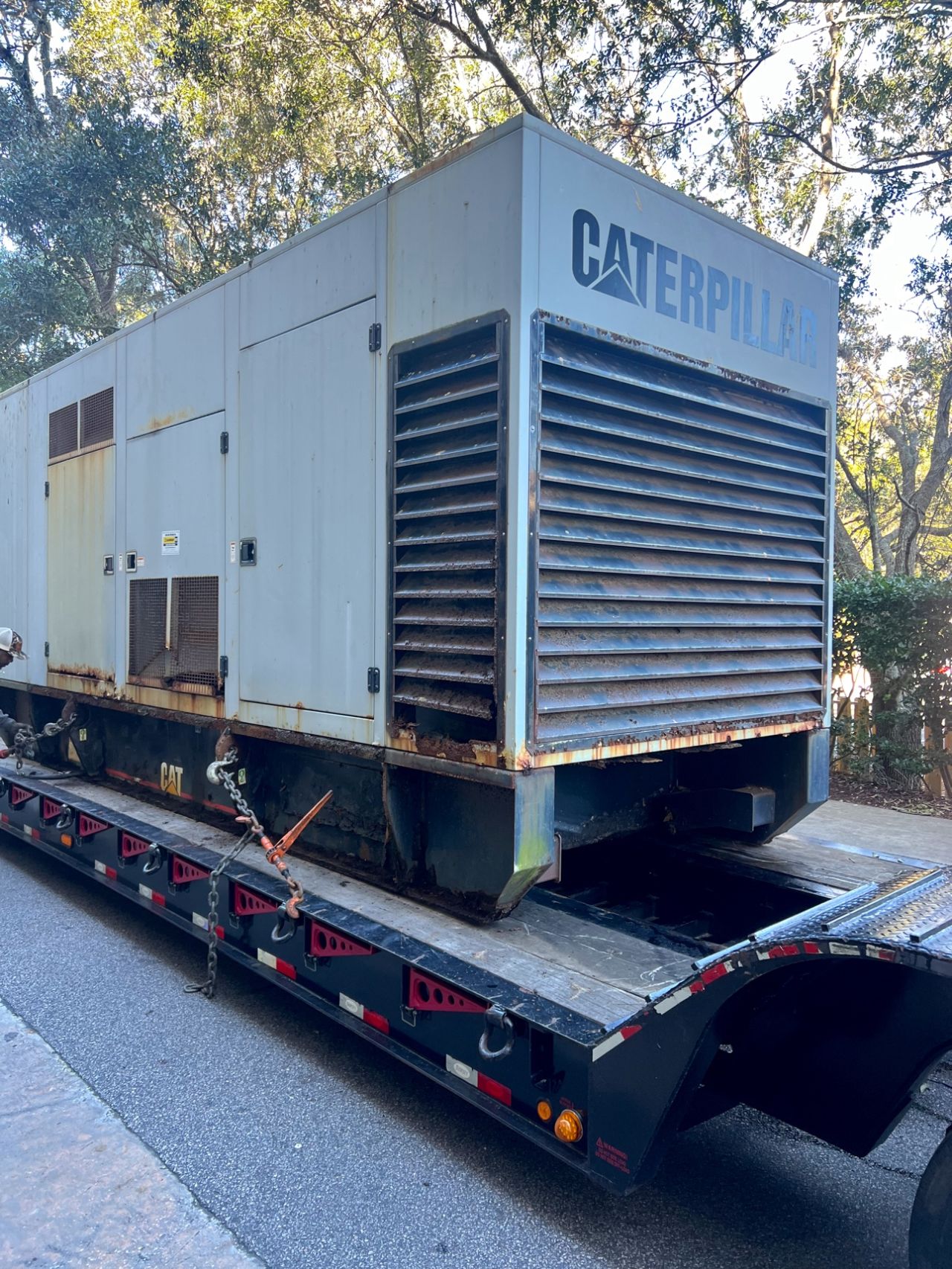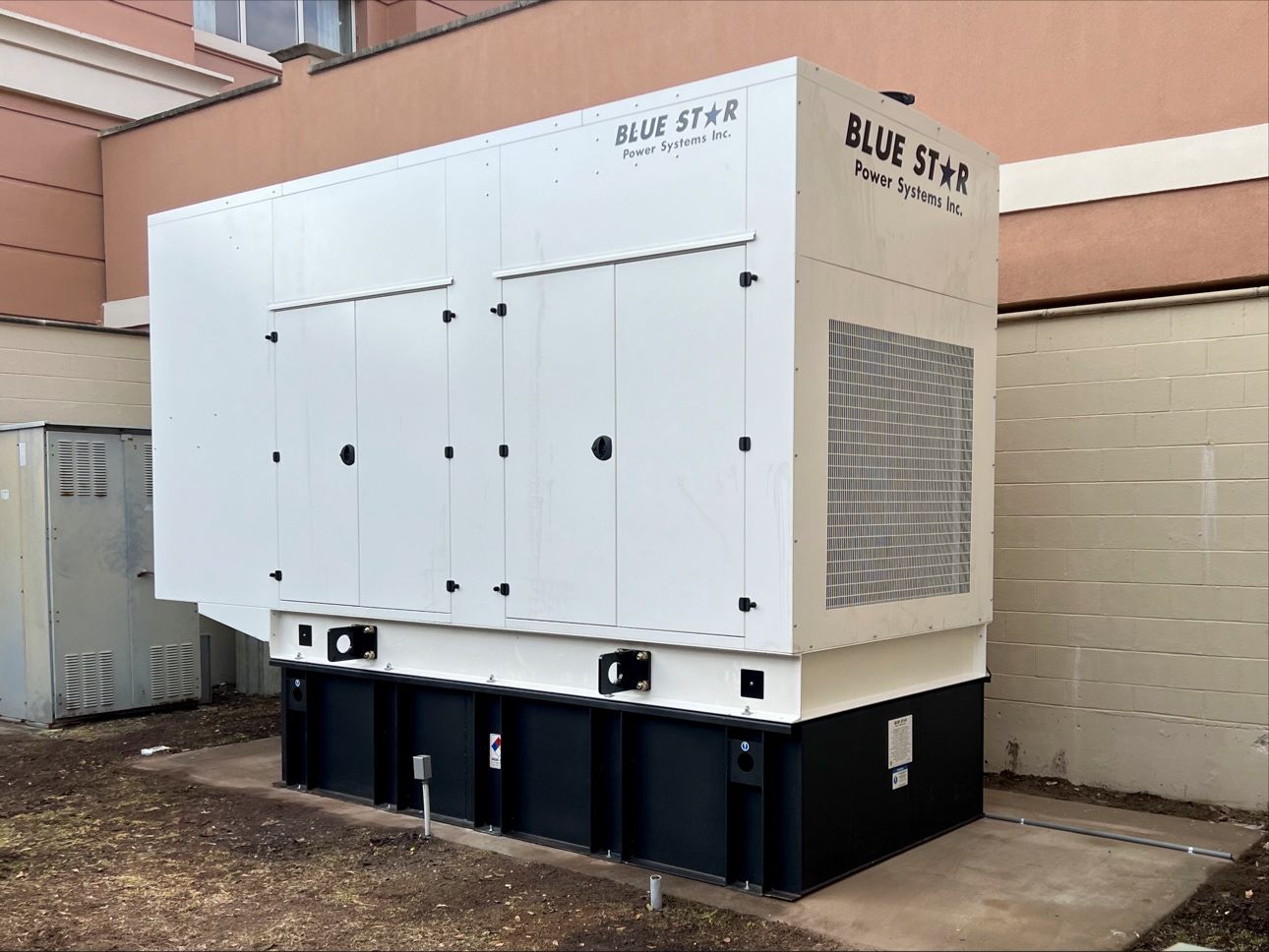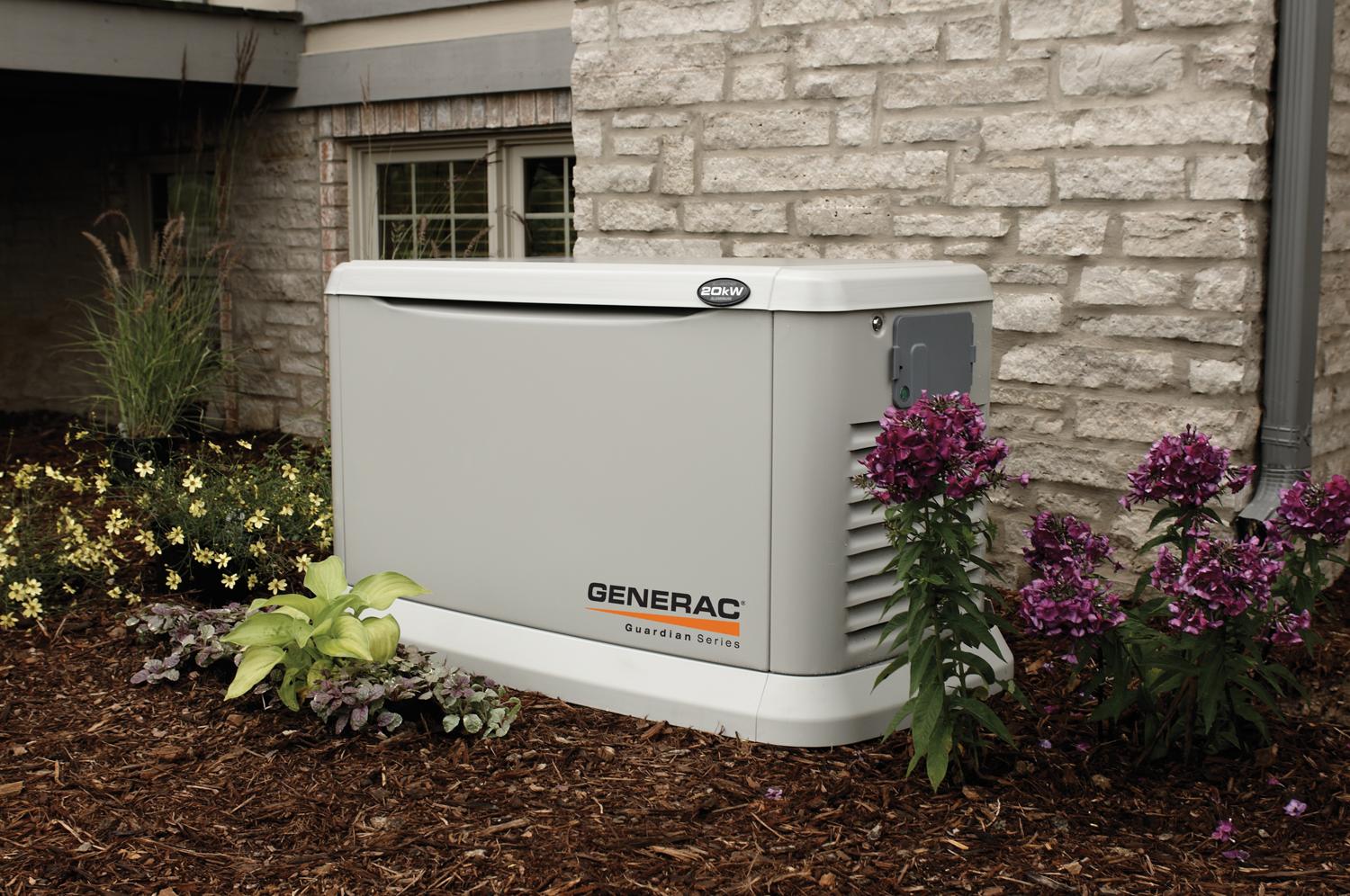How Does a Home Generator Work?

Home generators are a great investment for any homeowner to consider. These systems provide electricity throughout your property during an outage, regardless of the cause.
Generators are connected directly to your electrical panel and are designed to turn on automatically when they detect a stoppage in electricity. They can also be turned on manually if needed.
In this article, we’ll go over exactly how home generators work, the types of generators available on the market, and what exactly happens during a power outage. Let’s dive into how these systems work.
How Does a Generator Work For Your Home?
Whole-home generators do exactly what you think — they provide electricity for your whole home. These systems are attached directly to your electrical system and can detect when the flow of power stops. When this occurs, the generator turns on and delivers electricity through the panel.
A home generator uses gas, oil, or another fuel source to turn mechanical energy into electricity. The engine, alternator, fuel system, and transfer switch all work together to burn the fuel, move the gears, create electricity, and send it to the home’s system.
Home generator operation is completely automatic, although these units have a manual transfer switch if the system fails to detect an outage. These systems are made to deliver electricity throughout your home as conveniently as possible.
Types of Generators For Your Home
Not all home generators are made the same, and it’s important to know what’s available. The types of home generators include:
- Standby generators: These units are installed next to a home and hardwired into the home’s electrical panel. They’re designed to run automatically during an outage.
- Portable generators: These small systems provide portability but don’t produce as much electricity as standby units.
- Inverter generators: These units offer quiet operation and cleaner energy by running only as needed.
How The Generators Work When Your Power Goes Out
So, how does a generator work when there’s a power outage? Here are the basics:
- The automatic transfer switch detects a lack of power coming through the home’s panel and turns the system on.
- The unit burns fuel to create mechanical energy and turns it into electricity, which it then sends through the system to the panel.
- The load management system delivers electricity to the panel and into the home as needed, keeping a constant flow of electricity coming into the house.
Keeping your generator fueled up is crucial to ensure it runs properly and doesn’t become damaged. These systems also have safety features like carbon monoxide detectors and overload protection parts. With proper care, a generator can operate safely for years to come.
If you need a generator installed, replaced, repaired, or maintained, be sure to work with local experts for service.
Work With Generator Services, Inc. for Generator Services in Columbia, SC
With over 30 years of expertise in the generator industry, Generator Services, Inc. is your go-to team for generator installations, repairs, maintenance, and more. Our licensed and insured technicians service all brands, offer same-day services, and bring decades of experience to the table. Work with us when you need upfront pricing, special discounts, or financing options for your generator project.
When you need help choosing the right home generator for your property, turn to GSI. Contact us now to schedule whole-home generator installation, repair, or maintenance.



